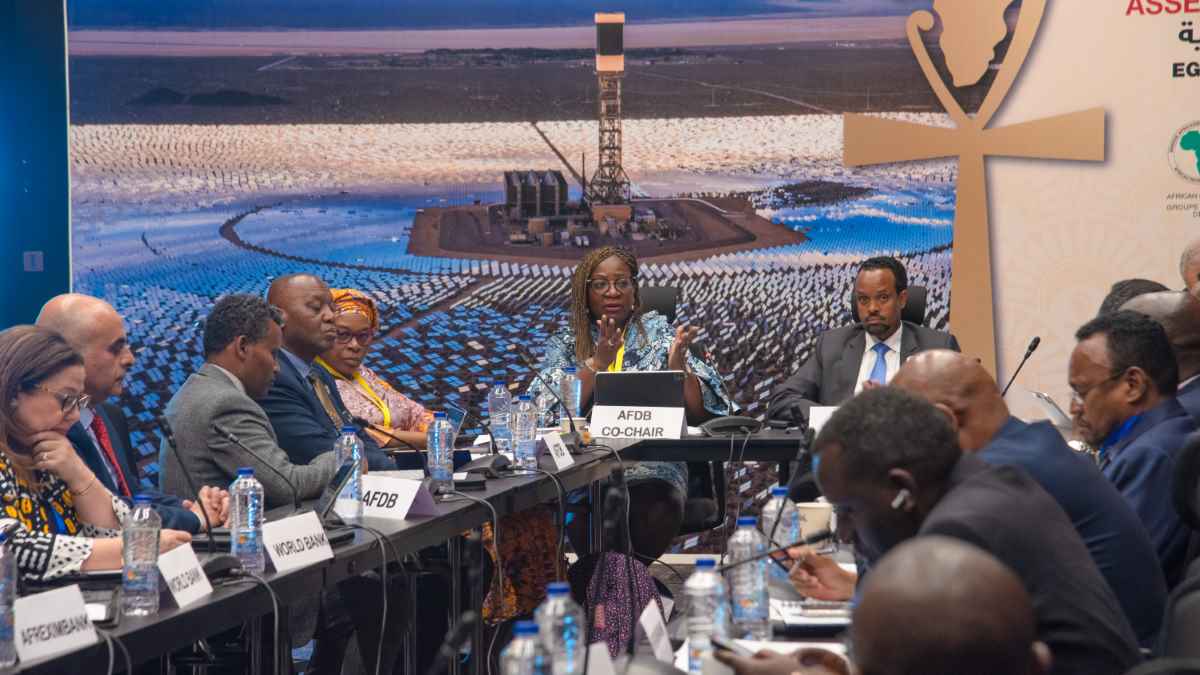The Horn of Africa initiative offers member countries and development partners a platform for cooperation in addressing shared regional challenges
SHARM EL SHEIKH, Egypt, May 31, 2023/APO Group/ —
Finance ministers from six Horn of Africa countries gathered for the 17th Ministerial Roundtable of the Horn of Africa Initiative (https://apo-opa.info/3OFtbZg) on the side-lines of the African Development Bank’s (www.AfDB.org) 2023 Annual Meetings and expressed strong consensus on the need for greater private investment and closer trade integration to increase resilience in the region.
“Regionally, we will need to focus on how the private sector can contribute to trade integration and the financing and resource gaps to support regional infrastructure without compromising debt sustainability,” said Ethiopia’s Finance Minister Ahmed Shide, who chaired the meeting.
The Horn of Africa initiative offers member countries and development partners a platform for cooperation in addressing shared regional challenges. During the meeting, members welcomed Germany as a fourth development partner alongside the African Development Bank, the European Commission, and the World Bank.
For the first time, the African Development Bank hosted the meeting; Marie Laure Akin-Olugbade, its Vice President for Regional Development, Integration and Business Delivery served as meeting co-chair.
In her opening remarks, Akin-Olugbade commended the initiative’s progress in the face of many challenges. The region has been hard hit in recent years by political instability, locust swarms and persistent drought. These compound wider constraints, including high levels of debt, and food and fuel price spikes.
“We hope that the discussion will allow us to explore some of the necessary steps required to mobilize private investment for priority projects,” Akin-Olugbade said.
South Sudan, which joined the Horn of Africa Initiative in June 2022, presented its priority projects, worth $2 billion, for inclusion in the initiative’s investment package during the meeting. Under a component of the initiative, member countries prepare projects that advance one or more of its strategic goals for investment and financing by development partners. To date, the three development partners have committed over $4.8 billion in financing for 54 projects across member countries, with a further $3.4 billion of projects in the pipeline for 2023.
We hope that the discussion will allow us to explore some of the necessary steps required to mobilize private investment for priority projects
The Roundtable also witnessed the signing of a $72 million financing agreement for the Djibouti-Somalia Corridor project, which the African Development Bank is supporting. The Minister of Economy and Finance for Djibouti, Ilyas Moussa Dawaleh, and Somalia’s Minister of Finance Elmi M. Nur, both signed. African Development Bank Director General for East Africa Nnenna Nwabufo signed on the institution’s behalf.
“This project is a significant milestone connecting Djibouti and Somalia and a key corridor for advancing regional integration in the Horn of Africa. In fact, this project connects Somalia, Djibouti, and Ethiopia, all of us,” said Shide of Ethiopia.
Following an African Development Bank presentation on ways to attract private investment, meeting participants were invited to share their thoughts.
Dawaleh said the purpose of the Horn of Africa initiative was to change the region’s narrative “of war, of refugees, of displacement, climate displacement, conflict displacement.”
Both the public sector and the private sector in his country were fragile, he said, and he called for an inclusive regional forum for businesses of all sizes and sectors. He saw setting up cross-border special economic zones as offering the opportunity for countries to trade goods and services in which they had a comparative advantage. As an example, he said, Djibouti can offer the advantages of access to a seaport, while Ethiopia, which is highly endowed in hydro-power and other energy sources, can provide cheap electricity to power the region’s industries.
Eritrea’s finance minister Samson Berhane said his country had been working recently to deepen cooperation with its neighbours, including Ethiopia and Kenya, and would continue to do so. He cited lack of infrastructure as a key constraint for the private sector in his country.
Nur said the temporary absence of government in Somalia had offered the private sector an opening, particularly in telecommunications. “Telecommunications in Somalia is efficient and the cheapest in the region,” he said. As a result, he projected, “we are on track to be a cashless society if we can sustain this trajectory.”
Annette Weber, European Union Special Representative for the Horn of Africa, commended the meeting’s focus on the private sector. She said that achieving progress on climate or human development would require the involvement of private actors. “Beyond funding, the private sector has extensive expertise that we need to tap,” she added. She cited the role the European Funds Sustainable Development + Initiative could play by providing credit guarantees and other de-risking tools.
Representatives of the Saudi Fund for Development, the Islamic Development Bank and Afreximbank also participated in the session as observers, a signal of strong interest to become initiative partners.
The African Development Bank’s annual meetings took place in Sharm El Sheikh, Egypt from 22- 26 May.
Distributed by APO Group on behalf of African Development Bank Group (AfDB).


 Energy4 days ago
Energy4 days ago
 Business4 days ago
Business4 days ago
 Business4 days ago
Business4 days ago
 Energy2 days ago
Energy2 days ago
 Business4 days ago
Business4 days ago
 Business4 days ago
Business4 days ago
 Energy3 days ago
Energy3 days ago
 Energy3 days ago
Energy3 days ago












